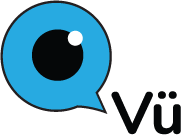December 20, 2021 published by Safe’N’Clear Sophia Puckett
Alexandra Cartier founded Vu Speech in an effort to bridge the gap between those who hear and those who do not hear. Vu Speech’s goal is to include anyone, whether they be hard of hearing or hearing, into every conversation.
Cartier has experienced challenges being hard of hearing. Sometimes she feels that she does not “fit in” in the hearing world. She recalls times when people were awkward around her due to the lack of knowledge about those with hearing loss.
When asked about why she wanted to be in the healthcare field, she states she always wanted to help people and she has a strong passion for medicine and biometrics. “I have always wanted to designs therapeutic toys for those who just lost their ability to be independent and help those who wants to improve their health & independence.”
In order to advocate for herself, she had to become ultra-assertive in vocalizing her needs in school, in social settings, and even at work. “I had to educate people on how I would join the conversation and explaining to people that I cannot hear or need ‘this or that’ in order to follow along in a cross-functioning setting.” She has become proactive in her task of receiving the communications and explain to her manager and teachers what accommodations were needed for her success. “Educating them was challenging. I had to learn how to be patient with them as they received the understanding and the adjustment on their part of communicating with me or anyone with hearing loss,” said Cartier.
“Having the ability to show people that I can invent, create and develop a business, just like everyone else. Having dreams come true is a miracle. I am very great that I can share and listen to those who don’t have a voice,” said Cartier. She stated that she is also a customer and she has needs too. Cartier states, “I want to solve the major communication problem that we have in the virtual reality & digital world.”
For others in Cartier’s situation, she explains that there is hope. “Speak up and be thankful that you have another way to educate those who are struggle. Don’t let anyone take your voice away. Smile and shine with opportunity to share your example on how you wanted to received respect and delegate the constructive instruction on how you would fit in the conversation in an interview, in a meeting and how they can set up the accessibility that is available for you,” responds an optimistic Cartier.
Cartier states a positive outcome of having hearing loss is that she is able to read people’s body language and read lips. She elaborates, “we are also very creative in our own imagination because we have to use our hands and gesture to communicate with people. We have a better understanding about communication and language barriers with people.”
Cartier provided some useful information when interacting with someone who has hearing loss: When you introduce yourself to a deaf person, it is very respectful if you ask them, this question: “How do you identify yourself as a person with hearing loss?”
“We are here to bridge the gap with those who can and cannot hear. Communication is essential for everyone,” said Cartier.
